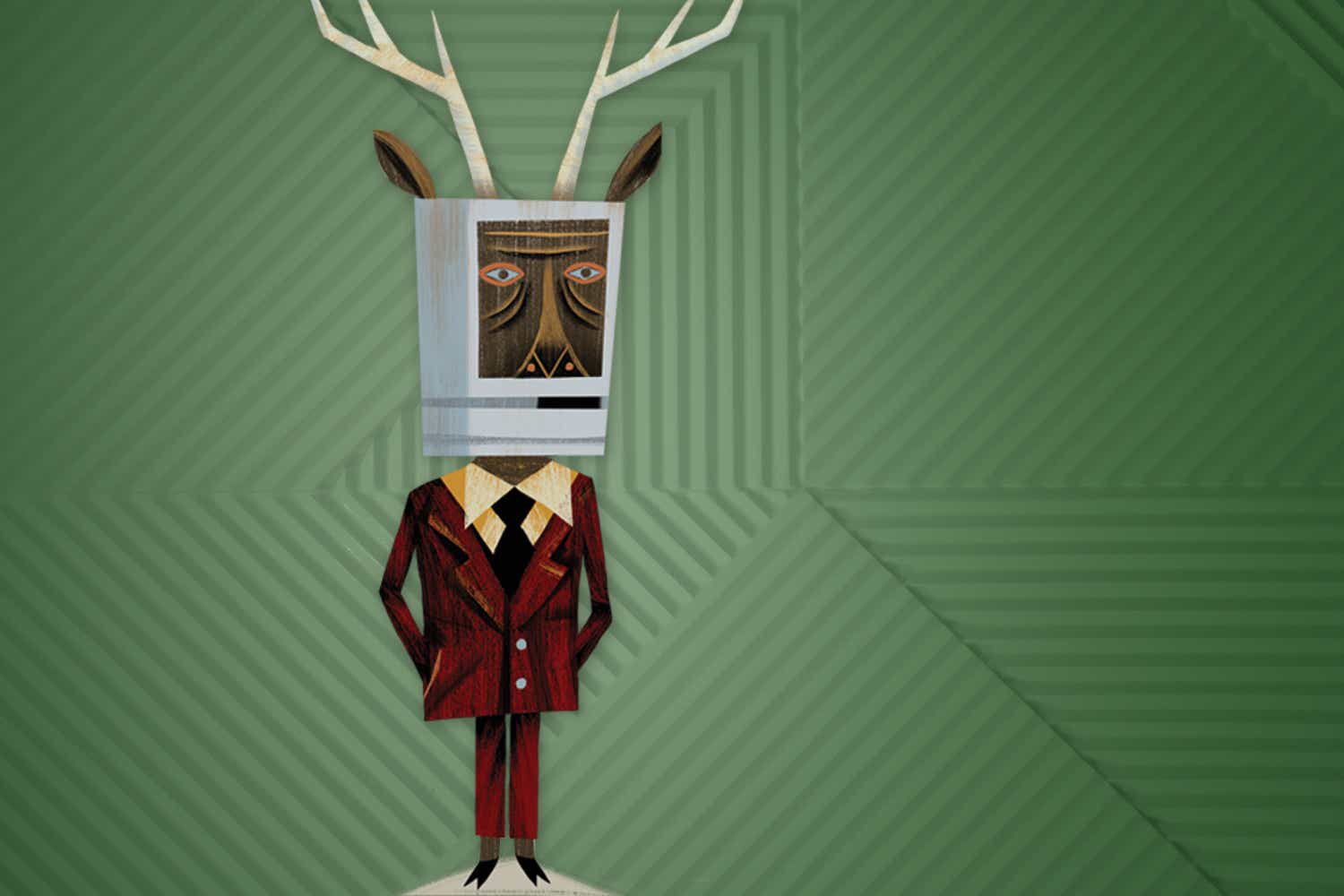In any business there are ups and downs. As you’d expect, ups and downs in Apple’s world can be pretty big.
(It’s just a theme to pull two mostly unrelated stories together, people. Don’t think about it too hard.)
Fortunately for Apple, the down here is actually for another company, but it’s a whopper.
“Goldman Is Looking for a Way Out of Its Partnership With Apple”
Did they not read the fine print on the credit agreement?
This comes after reports that Goldman Sachs has lost billions in the relationship. The Macalope doesn’t know about you, but when he gets into business deals that lose him billions of dollars, he considers those bad deals and attempts to get out of them. Moreover, he tries not to get into similar deals in the future.
That’s just him though. And, um, Goldman Sachs, apparently. You can’t really blame them for trying to squirm out of the deal. The company is reportedly looking to American Express to take over its entire credit card business, although a deal has not gone through yet.
Seems like a bit of a tough sell. “Heyyy, buddy. You got any interest in taking over this Apple Card thing? Good business. No, really… uh… really good business. We’d looove to keep doing it but… just sooo busy with the other stuff.” Well, the Macalope wishes them both the best of luck in this billion-dollar game of hot potato.

IDG
The one company that Apple Card has been really good for is… anyone? Yeah, it’s Apple. Since its introduction, the Apple Card has gone on to be a big contributor to Apple’s services revenue.
With downs like that, who needs ups? Well, not Apple, but here it is anyway.
“Apple’s Market Valuation Returns to $3 Trillion After Almost 18 Months”
So what? If you’re an Apple customer, it affects you not in the slightest. It doesn’t change the quality of Apple’s products, it doesn’t change the user experience, and it doesn’t make Craig Federighi’s hair any more full and lustrous.
That’s just genetics. Nothing you can do about that.
Now, if you’re an Apple employee with stock options (or an Apple investor) it matters, and maybe some of that circles back around to better products. (Still not hair, though.) But it’s not a relationship that’s easy to calculate.
So, no big deal, right? Sure. However, if you’re a long-time watcher of Apple like the Macalope is, it’s funny to see the company become the most valuable in the world when we were told for the better part of two decades or more that it was minutes from going out of business. This wasn’t an unreasonable thing to say in the mid-1990s, but pundits hung onto the notion far longer than it seemed possible given the assumption that all human beings operate with at least a baseline understanding of logic. “Are these people serious?” we wondered in the early 2000s. “How do these people dress themselves?” we pondered around 2008. “CAN THESE PEOPLE EVEN HANDLE BASIC CONCEPTS LIKE HOW SOUP WORKS?!” we shouted around 2016.
Once Apple passed $1 trillion in valuation, though, things began to change. The very idea it could go out of business was less and less publishable. When it passed $2 trillion, you needed to be selling a book or something and just trying to get attention. Now that it’s back at $3 trillion, don’t expect to see it floated much if at all.
So, maybe as an Apple customer, there is a benefit after all.
(Correction: An earlier version of this article referred to Apple Pay instead of the Apple Card throughout. The Macalope regrets the error.)


